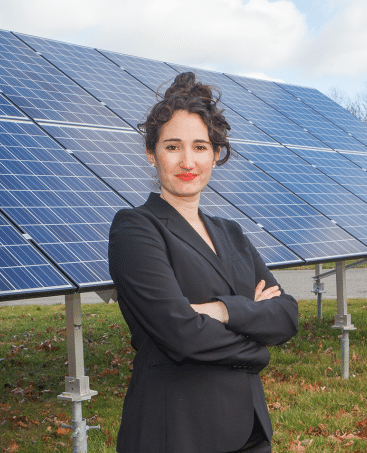May 5, 2020
With courses taught by world-renowned visiting scholars and experts, Vermont Law School’s Summer Session is open to students from schools around the country. This summer the classes will move online due to the COVID-19 campus closure. But with 24 environmental law courses on deck, there is no shortage of exciting topics to choose from. Associate Dean and Professor Jenny Rushlow weighs in on four she’s especially excited about.

- Environmental Crimes
with Deborah Harris, Chief of the U.S. Department of Justice’s Environmental Crimes Section.Environmental crime is the most common federal offense committed by U.S. corporations, and among the most profitable criminal activities in the world. “VLS is delighted to offer this course for the first time and have it designed and taught by Deborah Harris, the Chief of the Environmental Crimes Section of U.S. Department of Justice,” said Rushlow. “This compelling topic is critical to environmental enforcement yet rarely taught in law schools; we are excited to introduce students to this field of practice.”
- Clean Transportation Law and Policy
with Joseph Halso, Staff Attorney, Sierra Club“Transportation is the number-one cause of climate pollution in the U.S.,” Rushlow said. “We’re thrilled to have the Sierra Club’s Joseph Halso teach this course focused on a key pathway to reducing harmful emissions: the electrification of our cars, trucks, and buses.”
- Advanced Communications for Environmental Advocates
with David Abel, Reporter, The Boston GlobeHow can environmental advocates communicate complex issues to a general audience? “Effective advocacy communication is a compelling skill for employers that typically takes years to hone,” Rushlow said. “Students should jump at the chance to join this workshop with a Pulitzer prize-winning reporter covering environmental issues.”
- The International Law of Food
with David Wirth, Professor of Law, Boston College Law School“It’s rare to find a law course devoted entirely to this critical subject,” Rushlow said. “Students will analyze contemporary legal and policy issues related to food, including supply, safety, security, subsidies, and trade, while also examining the role of international institutions.”
Learn more about our summer offerings and how you can get involved.